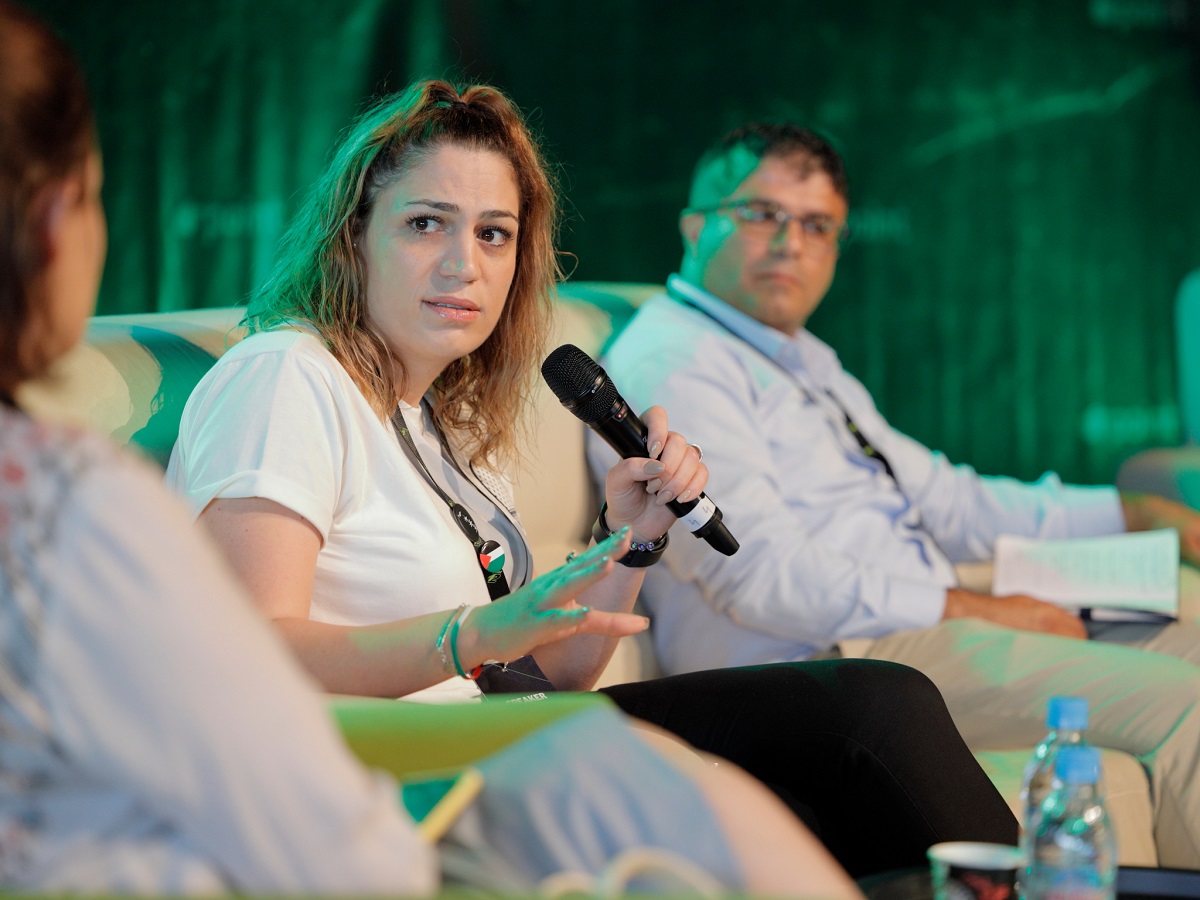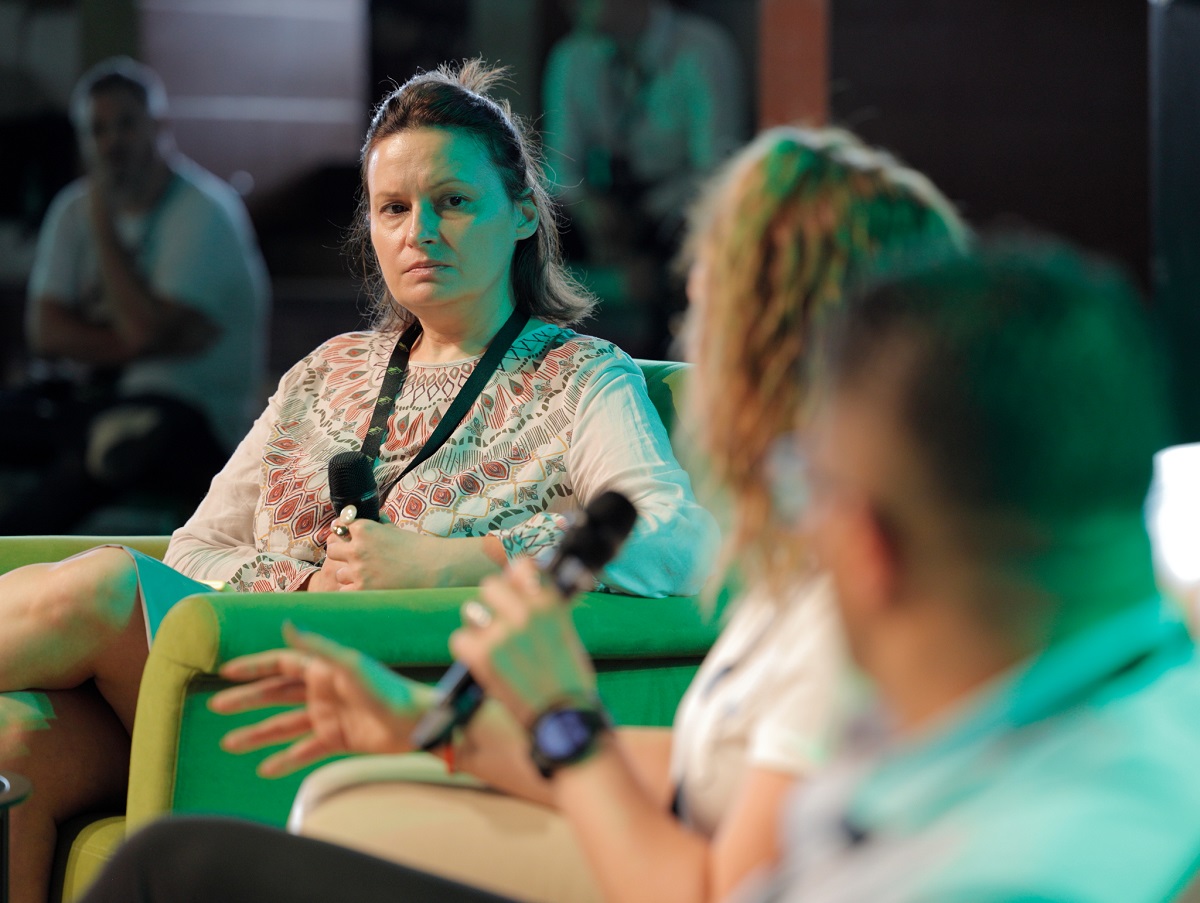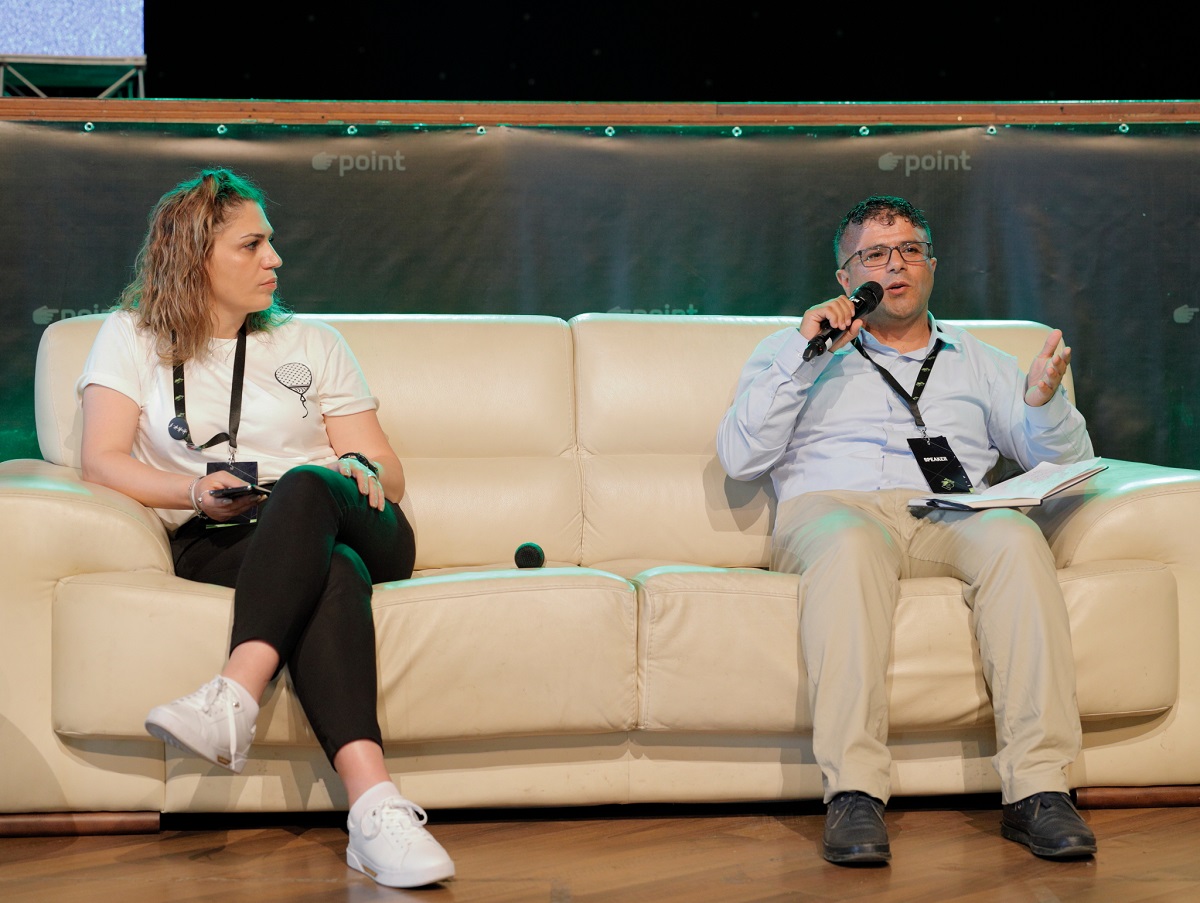The power of the truth: Being a journalist in Palestine
Practicing journalism in extremely violent conditions, reporting on high scale violence while fearing for your own safety, working without basic equipment and with restricted access to information, a lack of financial support and challenges in reaching the audiences – those were some of the talking points of Palestinian journalists at the fourth panel on the first day of the Point conference.

The context of the extremely violent conflict which escalated in the Palestine region on October 7, 2023, following Hamas attacks on Israeli soil, was explained at the beginning of the panel by moderator Tijana Cvjetićanin. The Hamas attacks, she said, resulted with more than 1,000 killed, almost 5,000 wounded and 250 hostages captured. The ground invasion and retaliatory attack against Gaza that followed is still ongoing, eight months later. Reporting on those events, she stressed, often called hell on earth, is in itself immensely hard.
“To do journalism in Palestine has probably never been harder than it is now. And the death toll of the attacks has risen up to 37,000 by now. 15,000 of them were children, 86,000 wounded, 10,000 still missing in the rubble, 2 million people displaced, many of them several times. Most of the buildings and infrastructure are ruined or damaged. Hospitals, schools and refugee camps have been bombed. Aid – food, water and medicine has been prevented from reaching Gaza”, Cvjetićanin described the Palestinian reality.
Social justice advocate leading the executive team at Palestinian Wattan Media Group, Khaled Faqeeh, stressed that being a journalist in Palestine should not be seen outside the context of Palestine. He said that Palestinians are classified by the Israel authority according to the areas they live in, and the journalists are classified by the same system too. Some of them, he stressed, have freedom to travel and move out of their own areas, some do not.
Facing challenges
“In Gaza no one is allowed to move. Journalists there are looking for new techniques and solutions. They are grouping around hospitals to search for the truth. In the media organization that I work for we have 75 journalists. We had 15 journalists in Gaza and now after the war started, we have five. We lost contact with ten of them, they managed to get to Egypt. Five of them are still in Gaza. Two of our journalists lost their entire families. The economic situation in the West Bank is what we call slow death. There are no salaries. Most of the media organizations are facing a severe economic crisis. They cannot pay journalists,” said Faqeeh.
Journalists in Gaza were always facing many challenges and now after the violence escalation they are facing the ones that they have never experienced before.
“The biggest one is fear. We are working in fear for our own safety and for the safety of our team members. Being a journalist now is the same as being a target. As a journalist you are the target. More than 150 Palestinian journalists were killed in Gaza and in the West Bank we are facing detentions and interrogations. We are now working in fear of what will happen while we travel. Will I be stopped at a checkpoint and interrogated or arrested?” said Palestinian fact-checker, communications expert and freedom of expression specialist and co-founder of fact checking platform Kashif Riham Abu Aita.

She stressed that it is challenging to communicate with victims, especially in Gaza, because of the cutt of the electricity and telecommunication channels, which means it is difficult to access information.
It was also highlighted that journalists in Palestine are tired, they are stressed out and traumatized. They are not able to move away from the disturbing content.
“It has been almost 9 months since the aggression on Gaza started and we are mentally very tired”, said Palestinian fact-checker. She pointed out that one of the most difficult things was to accept that the world did nothing after getting facts from Palestine.
“In Palestine the journalists are heroes. Around 150 journalists were killed in Gaza and now we are doing an investigation because most of them are killed in their homes with their entire families, not in the field. One journalist was killed in Tulkarm in the West Bank and three journalists were killed in Lebanon”, said Faqeeh.
Reaching the audiences
Cvjetićanin pointed out that Wattan Media Group is one of the most influential and important media in Palestine with a huge audience – 3.6 million people on Facebook, hundreds and thousands more on other platforms. Kashif also has a huge audience, she added, with more than 20.000 followers on Facebook and with thousands more on other platforms.
“But when I opened your social media accounts, the interactions were actually quite low on both. With 3,4 million followers they should not be double digits which they are,” Cvjetićanin noticed and added that it was clear that visibility had dropped in the past 9 months.
“You know, it is not easy also to work through the war and because we have to keep our momentum going, covering social and economic issues. Especially we have accountability programs, investigative programs, and yes, we have like 18 classic media and modern social media platforms. We have huge outreach in Palestine. We are ranked on the top of social media in Palestine in terms of news agencies. But actually, because of META, we have discriminatory approaches against the Palestinian content. Palestinian content is not treated the same as Israeli content. There are double standards. And we face that with, mainly, Meta platforms.”, said Faqeeh.

Abu Aita noted that fact-checking and media literacy organization Kashif also faces problems with tech companies. She pointed out that their TikTok profile was banned two weeks after the war started.
“We have another problem with Facebook. Apart from the fact that our page is verified, when we fact-check something they cover it with the claim that we are publishing disinformation. We replied to them with the explanation that we are not publishing disinformation but fact-check”, said Abu Aita and added that they never get an answer from Facebook (now Meta).
She said they recently experienced the same treatment from instagram, which also treated their content as disinformation. Because of this, she said, they are trying to develop new channels of communicating with audiences through the platforms such as WhatsApp and Telegram which is working only for local communication while it is not reaching international audiences.
“So Instagram, Facebook and Twitter are much better, but unfortunately Meta does not like the Palestinian content,” she claimed.
Author: Alena Beširević